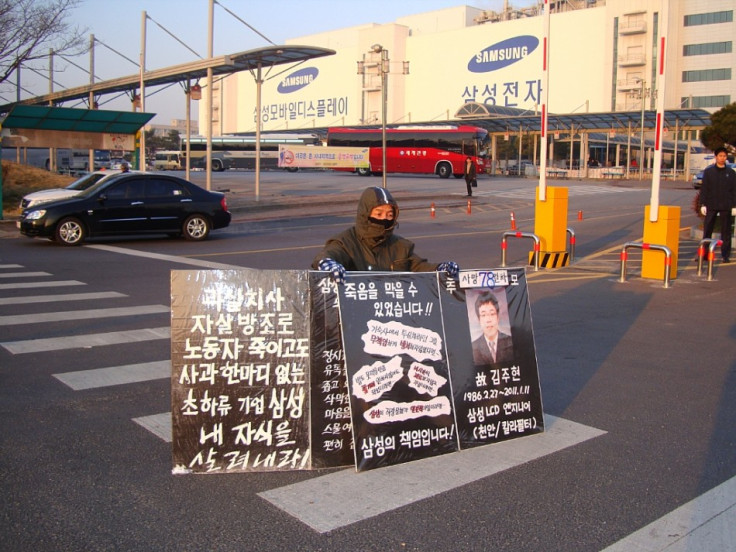After 70 Years of Repression, Samsung Must Allow its Workers to Unionise

Last week Samsung Electronics was condemned by IndustriALL, a global union representing 50 million workers. Its declaration accuses Samsung of consistent human rights violations, denying the fundamental right of freedom of association.
IndustriALL goes on to cite a long list of abuses by Samsung over the past few decades, including accusations of union leaders being kidnapped and beaten by Samsung employees. This declaration came as the result of a direct petition from the Korean Metal Workers' Union, however these practices are widespread across Samsung's multi-national supply chain.
Since it was founded 70 years ago Samsung has maintained a strict 'no union' policy, claiming that "employees do not feel the need for a... union". Yet at every attempt by employees to form a union they have faced severe repression. A 150 page document was revealed in October by a Korean politician, Sim Sang-jeung, outlining the Samsung Group's union-busting tactics, including the laying off of union organisers. This strategy has received criticism from Samsung workers, including Wee Choi Hak who claims he was kidnapped by Samsung officials.
The need for the unionisation of Samsung's workers is clear. In October a South Korean court ruled that there was a "considerable causal relationship" between leukaemia and workers' employment in Samsung's memory chip factories. Yet alongside these workplace deaths and illnesses the vehement anti-union campaign of Samsung has continued, with disciplinary action being taken against union officers.
Such treatment of workers, and disregard for their right to freedom of association is not specific to the electronics industry, and is a major issue in the manufacture of garments as well as other goods. In 2008 Russell Athletic closed down its factory 'Jerzees de Honduras' leaving 1,200 workers unemployed in retaliation to their efforts to unionise. The corporate-funded Fair Labor Association (FLA) found no violations of the freedom to associate. However the Worker Rights Consortium an independent worker-led monitoring organisation, found that "the closure of the factory has been determined, at least to a significant extent, by the existence and activity of the union."
As a result of the WRC's report, anti-sweatshop campaigners such as People & Planet () in the UK, and United Students Against Sweatshop (USAS) in the US, were able to work with the Honduran unions to campaign in solidarity for workers' rights at the factory. After a year of campaigning, with workers from the factory touring the US, Russell Athletic gave in, rehired all 1,200 workers, paid compensation, and allowed union organising in all of their factories.
This example in the garments industry demonstrates how independent supply chain monitoring, working with workers' organisations and campaigners, can defeat anti-union corporate policy. Now, similar movements are being made in the electronics industry.
Earlier in the year, a new organisation called Electronics Watch was launched as an independent monitoring organisation working to achieve respect for labour rights in the electronics industry. Using a similar model to the WRC, Electronics Watch (http://www.electronicswatch.org) aims use public sector spending to influence the industry and support the rights of the people who manufacture our electronics.
Its organisers hope that it can make a difference in preventing cases like that of Samsung in the future.
Matt Franklin is a member of People & Planet, the largest student network in Britain campaigning to end world poverty, defend human rights and protect the environment. peopleandplanet.org.
To read Matt's condemnation of Dell, click here.
© Copyright IBTimes 2025. All rights reserved.





















